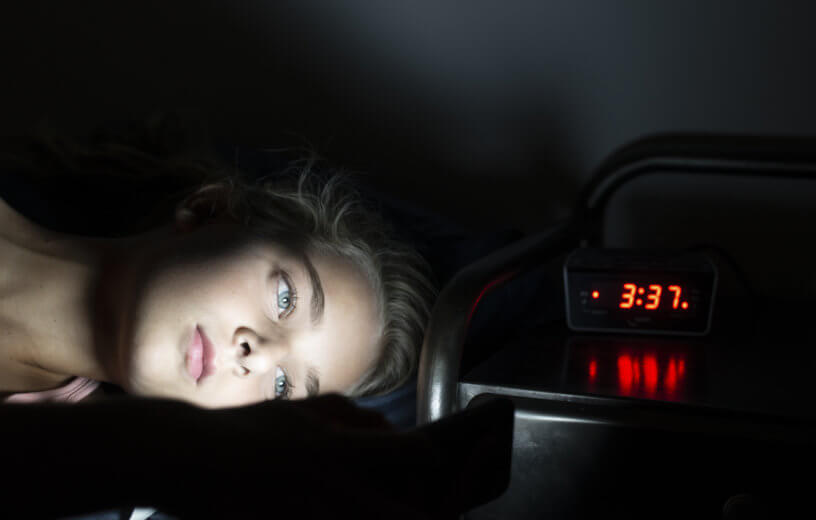STOCKHOLM, Sweden — Although most doctors will say the best way to prevent diabetes is to watch your diet, a new study is adding a good night’s sleep to the list. Researchers in Sweden say insomnia can increase a person’s risk of developing type 2 diabetes. They find that trouble sleeping is one of 19 factors that can negatively impact your chances for having the condition.
Researchers Susanna Larsson and Shuai Yuan of the Karolinska Institutet in Stockholm find people suffering from insomnia increase their risk for type-2 diabetes (T2D) by 17 percent. Their study shows there are actually 34 different factors which affect diabetes, 15 of them in a positive way.
According to the American Diabetes Association, T2D means that the body can’t use insulin properly. While some patients can control their blood sugar levels through proper diet and exercise, many patients require medication to manage the condition.
The study authors examined 1,360 relevant articles on risk factors of type-2 diabetes. They used a technique called “Mendelian Randomization” (MR) to remove confusing or conflicting data about causes of the condition. The articles reveal 97 possible risk factors for T2D. Using MR on health data on over 85,000 T2D cases and 900,000 controls of European ancestry from two separate patient pools, researchers whittle down the harmful risks to issues with these factors:
- depression
- systolic blood pressure issues
- starting smoking
- a lifetime of smoking
- drinking coffee (caffeine)
- blood plasma levels of the amino acids isoleucine, valine, and leucine
- liver enzyme alanine aminotransferase (a sign of liver function)
- childhood body mass index (BMI)
- adulthood BMI
- body fat percentage
- visceral (internal) fat mass
- resting heart rate
- blood plasma levels of four fatty acids (Eicosapentaenoic, Docosapentaenoic, Arachidonic acid, Stearic)
- insomnia
How insomnia factors into type-2 diabetes
So why is insomnia just now being added to the list of risk factors? Researchers suggest it could have something to do with the effect poor sleep has on lifestyle choices.
“Short sleep and poor sleep quality have been shown to be associated with less healthy eating and irregular meal patterns, including breakfast skipping, which was related to an increased risk of type-2 diabetes in this MR study and in previous observational studies,” the authors write.
The Swedish team notes that some of these factors are linked to the patient’s body mass index and obesity. After adjusting for this, the risk insomnia plays in type-2 diabetes can fall to seven percent. Eight factors, including systolic blood pressure issues, smoking, and liver enzyme levels, remain a problem regardless of obesity levels.
One a positive note, increasing total cholesterol, good cholesterol, testosterone levels, and sex hormone levels are important for decreasing your risk for T2D and are also not affected by your BMI.
Other factors which can decrease the chances of T2D include birthweight, adulthood height, lean body mass for women, circulating vitamin D, and a patient’s level of education.
“Our study confirmed several previously established risk factors and identified novel potential risk factors for type 2 diabetes using the latest summary-level data,” the study authors write in a media release.
“Findings should inform public health policies for the primary prevention of type 2 diabetes. Prevention strategies should be constructed from multiple perspectives, such as lowering obesity and smoking rates and levels, and improving mental health, sleep quality, educational level and birthweight.”
The study appears in the journal Diabetologia.
